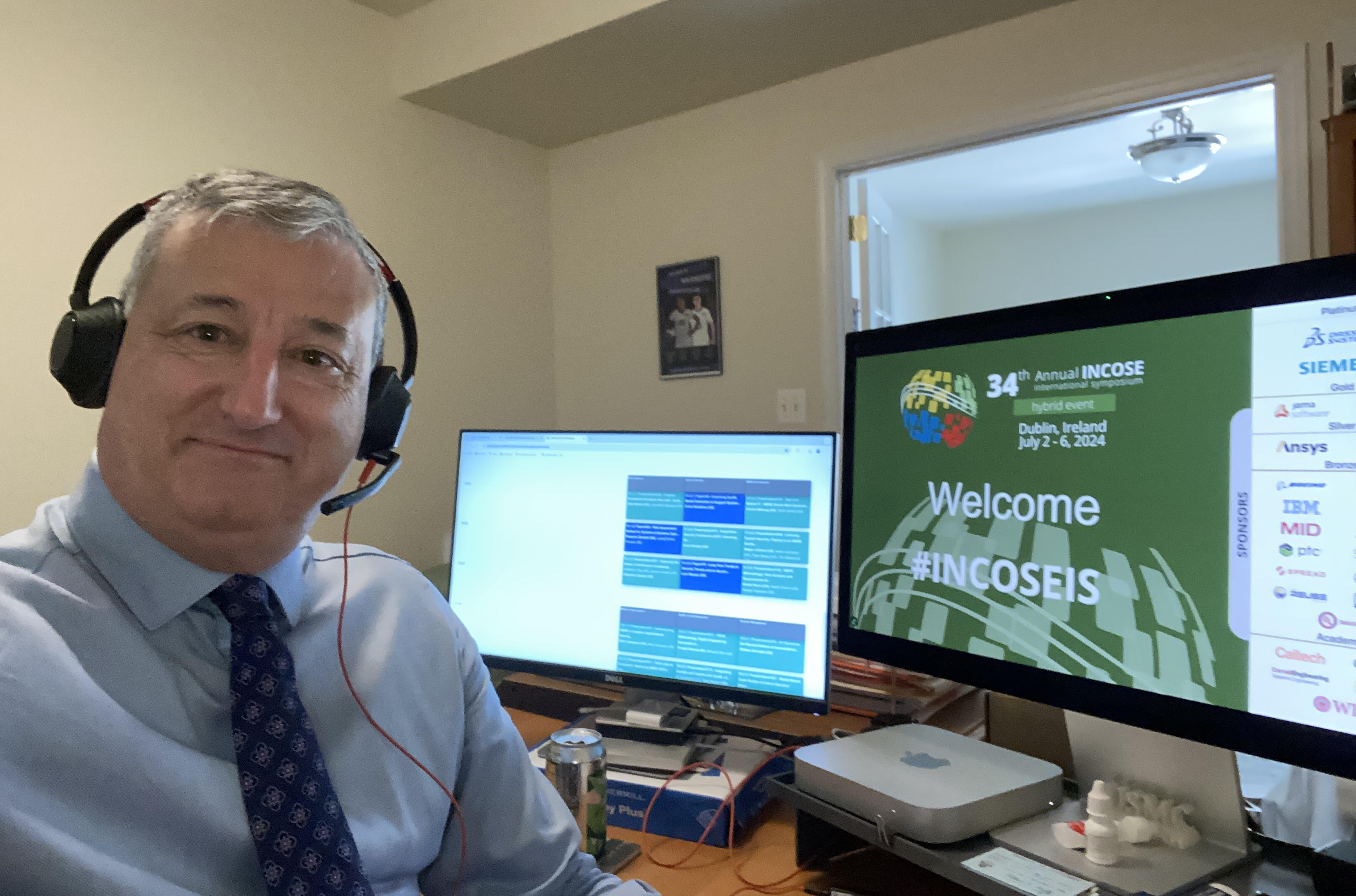Each year, the International Symposium, the flagship event for the International Council on Systems Engineering (INCOSE), attracts thought leaders in multiple areas of systems engineering. As systems become more complex and digital engineering and artificial intelligence-assisted systems engineering advance, researchers submit an increasing volume of high-quality material for presentation. However, not all accepted materials can be presented due to the limited days allocated for this symposium. This challenge prompted Professor of Engineering Management and Systems Engineering Eric Dano to explore potential solutions.
Dano, the former president of the New England INCOSE chapter and current faculty representative to the GW student INCOSE chapter, worked with INCOSE staff to resolve this issue through a virtual forum coinciding with the live conference sessions in Dublin, Ireland. Between July 2 and 4, 2024, 40 virtual sessions took place, consisting of 37 paper presentations and a half-day panel on Model-based Systems Thinking. They divided virtual sessions into three simultaneous tracks, each containing three presentations on a common topic or domain, with afternoon and evening sessions held daily, separated by a valuable networking break.
As the emcee, Dano directed virtual attendees to the various presentations, ensured the track chairs stayed on schedule, and coordinated with the platform provider to resolve any technical issues. Dano notes that feedback on these inaugural INCOSE International Symposium virtual sessions was quite positive, as they enabled more valuable papers to be presented, allowed people to attend virtually at a drastically reduced cost, and reduced travel time. The positive feedback has led INCOSE conference staff to the decision to continue virtual sessions at all future International Symposiums.
“Continued virtual conference sessions will serve to get critical information out to practitioners worldwide and allow the systems engineering community to solve problems of ever-increasing difficulty,” said Dano.


